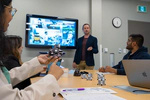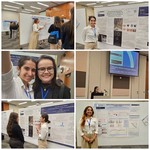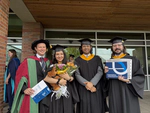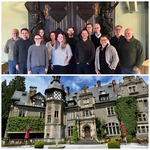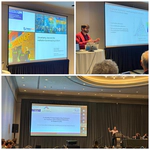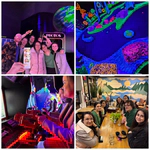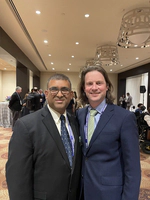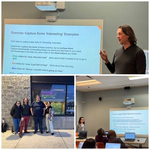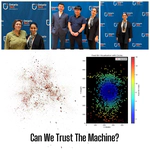Latest News
As more people and organizations turn to artificial intelligence (AI) for ideas and answers, it is essential to question whther the information AI provides is reliable and accurate.
In this interview, Peter answers questions on trust, uncertainty, and self-awareness, describing some of the ongoing projects we have in our lab, and ultimately cautioning people to be `rational skeptics’; to take advantage of AI but to not be naïve to its challenges and downsides.
Peter and Steve were both invited to attend the sixth Trusting Intelligent Machines workshop, hosted at Schloss Rauischholzhausen in Germany. The workshop included experts on trust, explainability, and artificial intelligence from academia and instrustry across Germany, the UK, Finland, and Canada. The theme of the workshop was exploring the personal and social consequences of the widespread outsourcing of human cognition to AI systems.
This week Peter and Stavros traveled to Detroit for the 24th International Conference on Autonomous Agents and Multiagent Systems (AAMAS).
There, Peter presented co-authored work with Zahra, entitled Evaluating Prompt Engineering Techniques for Accuracy and Confidence Elicitation in Medical LLMs at the 7th International Workshop on EXplainable, Trustworthy, and Responsible AI and Multi-Agent Systems (EXTRAAMAS).
On the 16th of April, Mahadeo and Peter accepted an award from Empowered Kids Ontario for their Partnership in explainable AI. This award is one of fifteen Tribute Awards that recognize individuals, teams, and organizations that are changing the lives of Ontario kids with disabilities and developmental needs.
On April 7th, the Trustworthy AI Lab delivered a workshop in partnership with Oshawa Public Libraries aimed at providing attendees hands-on experience with different AI tools.
On April 4th, Peter gave an invited talk at the Digital Innovation in Education Conference.
In the talk, “Learning and Researching with Artificial Intelligence: Engaging Critically as Individuals and Society”, Peter discussed the trustworthiness (or otherwise) of various AI systems in a learning and teaching context, which formed the basis of reflections on and advice concerning the role of AI in modern education.
